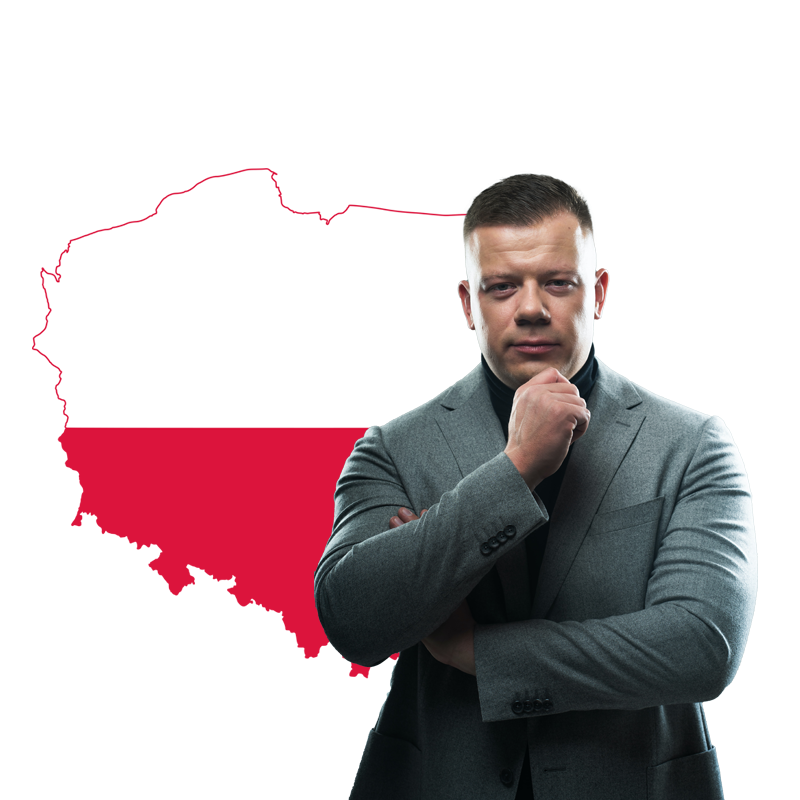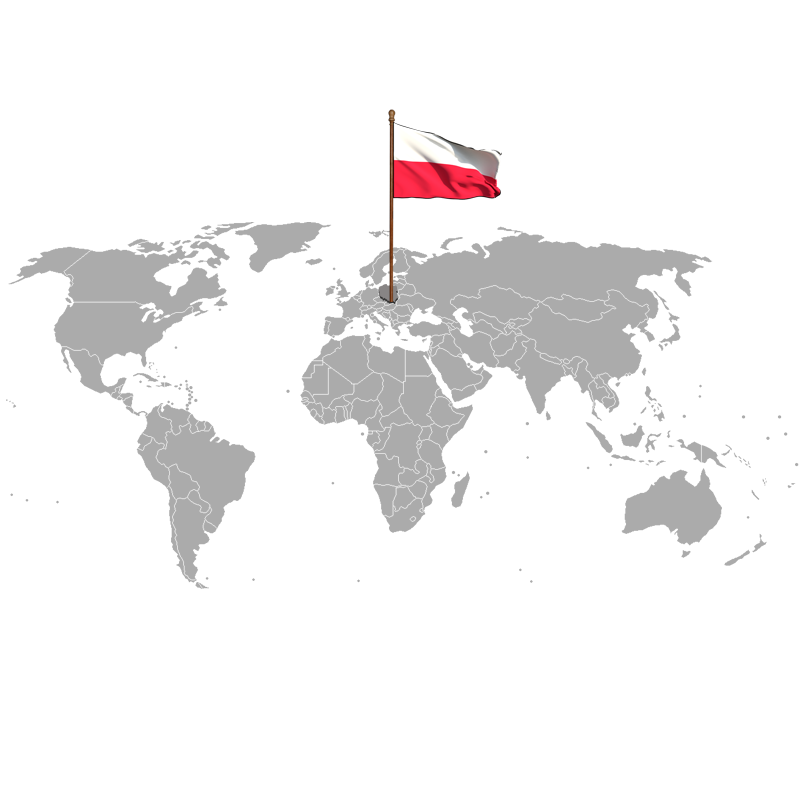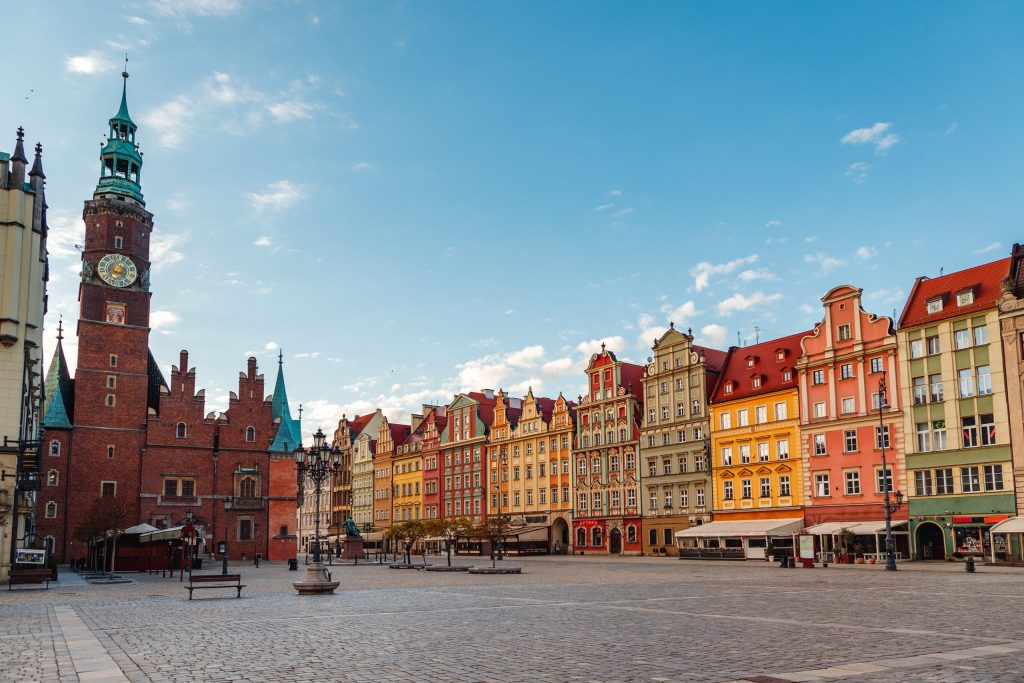Poland
We represent clients from all around the world in Poland every year. We see the globe as having no borders and are unafraid of language hurdles or time zones.


LegaMart Lawyers in Poland
Legal Industry in Poland

Articles about Law in Poland
Tell us more about your problem.
Please give a brief description about what it is you need to talk to our lawyers about ?
Most common legal demands in Poland
Legal Market Overview in Poland
Poland has a population of over 38 million, which makes it the 34th most populous country in the world and the sixth most populous member of the European Union. Poland’s economy is currently one of the fastest growing within the EU. Having a strong domestic market, low private debt, flexible currency, and not being dependent on a single export sector, Poland is the only European economy to have avoided the late-2000s recession. In 2004, Poland joined the European Union. One of the effects of joining the EU was the incorporation of the Polish market into the internal market of the European Union. In the eve of accession and afterwards, Poland became a good place for foreign investments. The main reasons were that Poland had a highly qualified workforce and at the same time, the labour costs were one of the lowest among the new member states.
The legal services sector in Poland has experienced a steady and continuous growth in the past two decades as a consequence of the growth in international trade and the emergence of new fields of practice, in particular in the area of business law. Sectors such as corporate restructuring, privatization, cross-border mergers and acquisitions, intellectual property rights, new financial instruments, and competition law have generated an increasing demand for more and more sophisticated legal services in the past years.

Before 2005, Poland was one of the European countries with the lowest rate of professionals providing legal services. In 2004, there were around 23,000 lawyers in Poland. However, due to deregulation, the number of lawyers in Poland rapidly increased. In 2016, the number of practising attorneys was 16,500, and that of practising legal advisors was 36,500, so altogether there were around 55,000 lawyers in Poland . It means that in Poland there is one lawyer for every 700 inhabitants. However, taking legal consultants into account, access to legal services is even more possible.
Poland’s general rule of law score decreased by less than 1% in 2022’s Index. At 36th place out of 140 countries and jurisdictions worldwide, Pakistan’s rank decreased by 9 in the global rank in comparison to 2019 (27).
According to World Justice Project Approximately 26% of people surveyed experienced at least one legal problem in the last two years. 23% Were able to access help and 20% Experienced hardship in resolving their legal issue.


Frequently Asked Questions
Does Poland allow dual citizenship?
There is no exact reference to dual citizenship in Polish law. There are no published penalties for possessing dual citizenship. Hence, for practical purposes, dual citizenship is permitted.
It is important to note that those who are citizens must use their Polish passport in cases involving Polish authorities. For example, on an international flight, you must use your Polish passport to enter and exit Poland.
Will I need to go to Poland to become a Polish citizen?
No. If you are a Polish citizen by descent or ancestry, there is no residency requirement nor are you required to go to Poland at any time during or after this process.
How do I know if I qualify for Polish citizenship?
First, you need to have Polish ancestors, usually just one. They need to have been born in Poland (or one of the former Polish territories) and resided there after 1920. In other words, you will need to prove that your ancestor was a Polish citizen after 1920 and also at the time of your birth.
My spouse is Polish, do I qualify for Polish citizenship?
Spouses of those who gain Polish citizenship by descent and live outside of Poland typically are ineligible for citizenship. However, a spouse of an EU citizen has many rights that are equivalent to their citizen spouse. Rules are different for non-Poles who live in Poland with their spouse. Naturalization is possible after a period of time but rules are complex.
How do I become a citizen of Poland?
If you have Polish ancestry, you are already technically a Polish citizen and you can apply to have your citizenship verified or by providing your heritage and by satisfying other specific eligibility criteria from the Polish government.
We’ll need some basic information about you, including your date and place of birth and details of your parents, grandparents and great-grandparents. A family tree would also be great. We’ll ask you about your Polish roots and for a brief family history. The more details and documentation you provide, the more specific we can be in assessing your eligibility.
How long does it take to obtain Polish citizenship by descent?
For citizenship by descent, the process can take a year or more. After citizenship confirmation, there are additional steps as new citizens must obtain Polish civil records certificates (birth and marriage if applicable) in order to actually apply for a passport.
The rules around those who live in Poland and are applying for naturalization are different.







